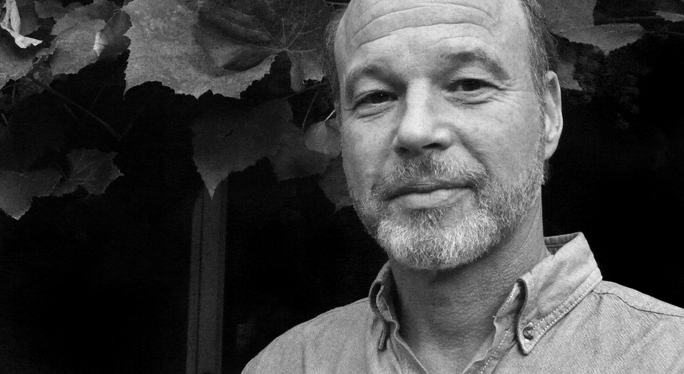The Civil War has been described as the first technological war, when the machinery of battle created slaughter beyond what the human psyche could endure. By the time it was over, the war had given rise to a new term, “soldier’s heart,” a melancholy phrase for the fear, despair, and isolation felt by those who had survived the fighting.
In the wars that followed, psychological torment has taken various names: shell shock, battle fatigue, combat stress. From the eloquence of the Civil War, we have come to the clinical terminology of our day. Post-traumatic stress disorder, or PTSD, as the condition is now called, is treated by modern psychiatry as a pathology of the mind. For psychotherapist Ed Tick, however, the trauma of war is not an illness, but
an injury of the soul, a war wound that cannot heal.
Tick is the author of the 2005 War and the Soul, a study of the psychic effects of war and how to overcome them. The book has struck a chord far beyond what its author would have dared predict, finding its way into the upper echelons of Walter Reed army hospital and the footlockers of soldiers in Iraq and Afghanistan. “I’m fl abbergasted by the response,” says Tick. “I hear directly from troops in the field, who use the book and
pass it around their units. And I hear from retired senior offi cers, writing to say ‘Thank you, you got it exactly right.’” The groundswell of interest in his message has led Tick and Kate Dahlstedt, his wife and professional partner, to launch Soldier’s Heart, a nonprofit organization designed to serve veterans and their communities.
“We need to return to the idea of ‘soldier’s heart,’ ” says Tick. “Soldier’s heart is a badge of honor. It can be respected by the population, and carries the truth of war experience.”
Was there a specific event that led you to devote your practice to the traumatic effects of war?
I first became involved in veterans’ healing in the late 1970s. Earlier, I had protested the Vietnam War, drew a
high lottery number, and never had to serve. But service and rites of passage are necessary for us to become
complete as men and citizens. I wanted and needed to give some form of healing service. I also wanted to know what the men of my generation really saw, did, and felt during that war and how it impacted them. I wanted to enter their brotherhood, that I saw missing in civilian men.
What is your concept of psychology?
Psychology is usually defined as “the study of the mind.” However, I believe in, rely on, and strive to practice in the spirit of the original ancient Greek meaning of the word. “Psyche” means soul. “Logos” means cosmic order and meaning. So psychology is the order and meaning of our souls. When you speak of the soul, what exactly do you mean? The divine spark planted in each of us that is the originating principle giving us thought, feeling, aesthetics, morality, passion, affirmation, purpose, and meaning. Nearly every culture in world history has honored, protected, and nurtured soul in its people. It is a telling symptom of our fallen times that we even question the word and the existence of this beautiful principle that it names.
In a recent lecture, you mentioned that North Vietnamese veterans do not suffer PTSD. Why, when our own Vietnam vets are plagued by that war, are their former foes untouched by it?
There is some PTSD in Vietnam among the worst victims of bombing and torture and among Southern vets who
allied with the US. But, largely thanks to the Vietnamese traditions of Buddhism, Confucianism, ancestor worship, animism, and communalism, there is proportionately little PTSD while we have very much. The Vietnamese do not suffer the moral trauma our vets do. They say, “We were never fighting Americans. We were fighting invaders who were trying to kill our children and take our homes. We like and respect America. Our veterans and yours are brothers and sisters who survived the same hell.” They truly live these wise ways.
What do we need to know on Veterans Day?
That it was originally Armistice Day, a holiday set aside not for patriotic purpose but to honor “the war to end all wars.” Its purpose was to join in international grief so that the nations of the world never practice war again. It has devolved into a holiday of shallow, reflexive patriotism from which many veterans hide. We would do well to restore the original meaning of the holiday. Don’t go shopping. Stand in silence for two minutes at 11am on November 11. The Western world once did that in unity and hope.
What’s the difference between a soldier and a warrior? And what, in your view, constitutes a hero?
A soldier is someone who is trained in the ways of the military and who has learned how to fight and kill. A warrior, traditionally, is a mature spiritual identity. A soldier is a servant of power. A warrior is on a spiritual journey. I grieve saying this, but someone who suffers is not necessarily a hero. Throughout history, the word “hero” has been used to designate someone who does something extraordinary by choice. The action is
not accidental and is beyond the usual human scope. Being a hero once meant striving to embody godlike qualities of courage, love, devotion, sacrifi ce, wisdom. We need to return the original meaning to the word so that it again truly means something. If everybody is a hero, then nobody is.












